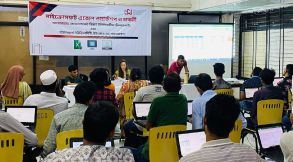Several hundred million women want a job but are out of the labour force, often because available opportunities are incompatible with traditional norms about their household roles. In a field experiment with 1,670 households in West Bengal, this study offers flexible, short-term data entry jobs which meet households where they are in terms of expectations on women’s domestic responsibilities. The paper finds three sets of results. First, job flexibility more than triples take up, from 15% for an office job to 48% for a job that women can do from home while multitasking with childcare and at the hours they choose. Second, working from home reduces worker efficiency. Third, flexible jobs act as a gateway to outside-the-home jobs for women initially out of the labour force: experience with flexible jobs makes women more likely to accept inflexible work several months after the initial intervention. This gateway effect may be explained by changes in attitudes about appropriate behaviour for men and women: flexibility makes a larger difference to the labour supply of women who hold more traditional pre-intervention attitudes, and work experience in turn shifts the gender attitudes of these women and their children to become less traditional. Thus, flexible work arrangements can both attract women to the labour force and provide a gateway to less flexible jobs.
STEG Working Paper Series
• Research Theme 2: Labour, Home Production, and Structural Transformation at the Level of the Household,
Cross-Cutting Issue 1: Gender
Bringing Work Home: Flexible Arrangements as Gateway Jobs for Women in West Bengal

Related content











































































